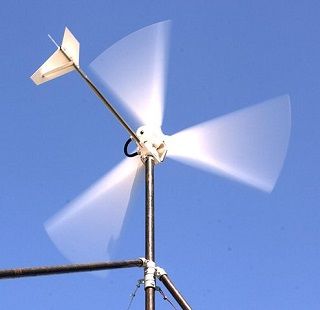From Guest Blogger Tom: Renewable Energy — We Still Have a Long Way To Go in Order To Meet Our Energy Demands

A significant part of the electricity generated in the UK (about 30%, according to McGraw-Hill Financial) comes from the burning of coal. A similar amount comes from the burning of natural gas. Both activities produce significant amounts of global warming emissions. With most renewable energy sources, though, the amount of harmful emissions produced is negligible. According to the Union of Concerned Scientists, while traditional energy sources like coal and natural gas produce between 1 and 3.5 pounds of carbon dioxide for every kilowatt hour of power produced (a kilowatt hour of power is what you need to use to light a 100 W light bulb for 10 hours) renewable sources like wind power and solar power only produce about 0.1 pound of carbon dioxide for the same amount of energy.
It’s important to understand that the term “renewable” by itself doesn’t equate to clean energy. Biomass (manure from raising animals, for instance) is a renewable resource – animals keep producing manure; so is wood from sustainable forests. Burning these fuels for electricity generation is capable of just as much greenhouse gas production as coal or gas, though.
The environment is an inexhaustible source of energy
Using traditional fossil fuels for energy production is more than just harmful to the environment. It is also unaffordable. British residents have been unable to afford their heating for decades. Nine out of ten British households turn off their heat at some point to save on their energy bills;. While switching to a cheaper energy supplier can help somewhat, one may need to do more.
If homes diverted their money to generating their own power from renewable energy, they would be able to stay warmer for less and help the environment, too. The UK, especially, has a great deal of room for improvement – the country only gets 11.3% of its electricity from renewable energy sources at this point.
The government offers a number of incentives to those willing to try microgeneration
Microgeneration – the term for small, single-household solar, wind and water power generation projects – gets a great deal of encouragement from the government. If you are willing to invest in this technology, you can get help through the Green Deal, the Renewable Heat Incentive, the Renewable Heat Premium Payments incentive and the Feed-In-Tariff plan.
Your options in microgeneration
Solar thermal: If you simply need to heat your home through solar power, a solar hot water unit can be a good idea. You’ll need to invest about £5000 for an average-sized system. With such a unit, you can save about £80 a year on your heating costs. When you invest in such a system, you get a £600 rebate under the Renewable Heat Premium Payment scheme, too.
A photovoltaic solar panel: While a full solar panel system can cost in excess of £20,000, you have the option to get a free solar unit under a rent-a-roof scheme. You simply let an installation company use your roof to install a solar unit. You pay a low rate to use the power that the unit generates. Whatever you don’t use, the company sells to your energy provider for payment under the Feed-in-Tariff scheme.
Wind power: A full-sized wind turbine can cost as much as £25,000. You can get financing from the Green Deal for installing such a system though. You also get paid close to 22 pence for each kilowatt hour that you put back into the grid through the Feed-in-Tariff scheme. You can expect to make your investment back over a period of 20 years.
The greatest reward of investing in microgeneration, though is knowing that you are being responsible to the environment.
